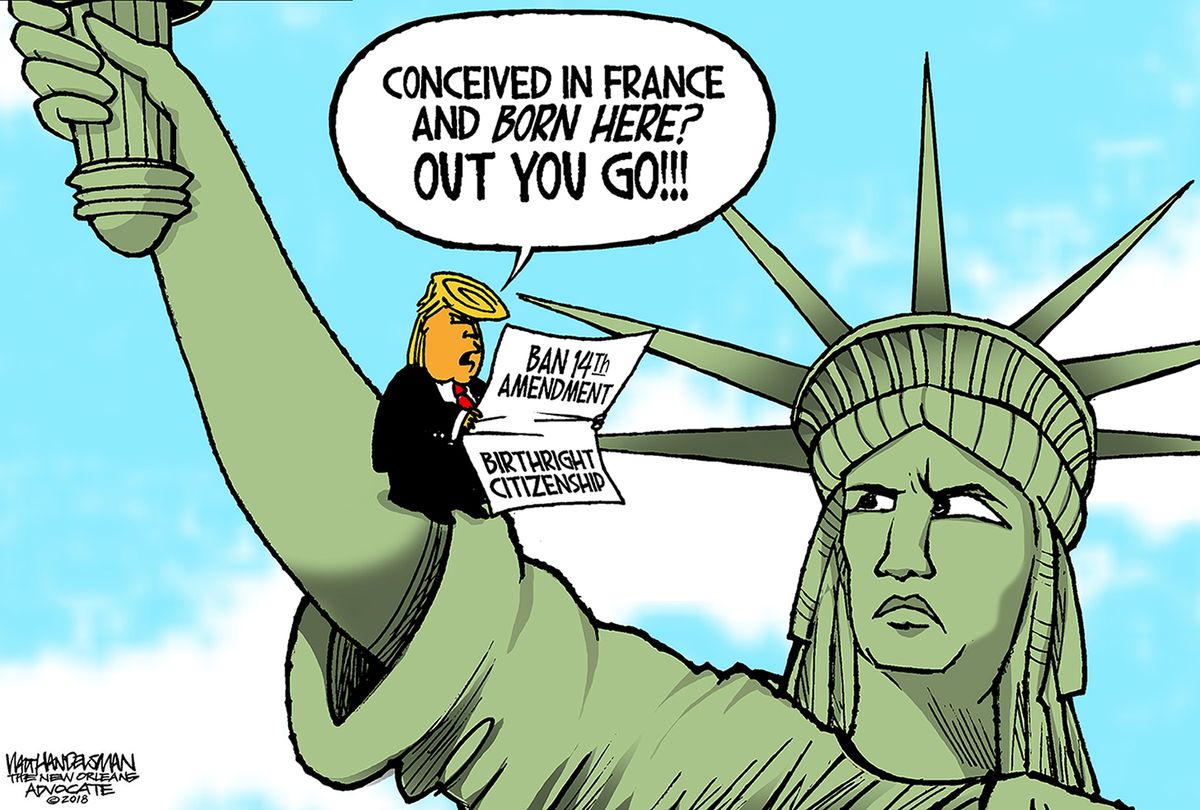The 14th Amendment: Cornerstone of Citizenship or Political Weapon?
The 14th Amendment to the United States Constitution has been a cornerstone of American citizenship since its ratification in 1868. However, its significance and impact on American society have been the subject of much debate and controversy over the years. The amendment has been invoked by politicians to justify a range of policies, from expansion of the franchise to increased federal power. But is the 14th Amendment a fundamental cornerstone of citizenship, or has it become a political weapon used to advance partisan agendas?
The 14th Amendment was born out of the tumultuous aftermath of the Civil War. In the aftermath of the war, President Andrew Johnson attempted to undermine the Civil Rights Act of 1866, which granted citizenship to former slaves. However, Congress overrode Johnson's vetoes and passed the 14th Amendment, which explicitly defined citizenship and guaranteed equal protection under the law.
One of the key provisions of the 14th Amendment is Section 2, which grants voting rights to male citizens who have paid a poll tax or other taxes. This provision has been used to disenfranchise African American voters and other minority groups. The Supreme Court has interpreted Section 2 to mean that states can impose conditions on voting that affect the vote of certain groups, as long as those conditions are equally applied to all groups.
The 14th Amendment has also been used to justify other forms of voter suppression. In Gaffney v. Crossman (1931), the Supreme Court ruled that states can restrict voting rights for felons, even if those restrictions disproportionately affect minority groups. This ruling has been used to justify a range of voter suppression tactics, from "no-fault" felony disenfranchisement to voter ID laws.
On the other hand, the 14th Amendment has also been invoked by civil rights activists to challenge discriminatory laws and policies. In Brown v. Board of Education (1954), the Supreme Court used the Equal Protection Clause of the 14th Amendment to declare segregation in public schools unconstitutional. This ruling paved the way for the Civil Rights Movement of the 1950s and 1960s.
The Amendment's Historical Context
Origins in the Civil War Era
The 14th Amendment was drafted in the aftermath of the Civil War, when the United States was grappling with the legacy of slavery and the newly enfranchised citizenship of former slaves. The amendment was the result of a bitter debate between Congress and President Andrew Johnson, who opposed the idea of granting citizenship to former slaves.
Ratification and Adoption
The 14th Amendment was ratified on July 9, 1868, with 28 states approving the amendment. The amendment was drafted by a committee of Northern Republicans, who wanted to ensure that former slaves were granted citizenship and equal protection under the law.
Impact on American Society
The 14th Amendment has had a profound impact on American society, shaping the course of civil rights and social justice movements. The amendment has been used to challenge discriminatory laws and policies, from segregation in public schools to voter suppression tactics.
The Amendment's Significance Today
Cornerstone of Citizenship
The 14th Amendment is widely regarded as a cornerstone of American citizenship. The amendment guarantees equal protection under the law and defines citizenship, ensuring that all citizens are treated equally under the law.
Regulatory Power
The 14th Amendment has also been used to justify increased federal power. The amendment grants Congress the authority to enforce the provisions of the amendment, which has been used to justify a range of regulatory measures, from labor laws to environmental regulations.
Implications for Politics
The 14th Amendment has significant implications for politics, particularly with regard to voting rights and campaign finance. The amendment has been used to justify restrictions on voting rights, as well as campaign finance laws that limit the ability of corporations to influence elections.
Impact on the Supreme Court
The 14th Amendment has also had a profound impact on the Supreme Court, shaping the court's approach to civil rights and social justice cases. The amendment has been used to challenge discriminatory laws and policies, from segregation in public schools to voter suppression tactics.
Conclusion
The 14th Amendment is a complex and multifaceted document that has shaped the course of American history. Whether or not the amendment is a cornerstone of citizenship or a political weapon used to advance partisan agendas is a matter of debate. However, one thing is clear: the 14th Amendment has had a profound impact on American society, shaping the course of civil rights and social justice movements.
Pros and Cons of the 14th Amendment
| Pros | Cons |
|---|---|
| Guarantees equal protection under the law | Can be used to justify voter suppression and other discriminatory laws |
| Defines citizenship and ensures equal treatment under the law | Has been used to limit voting rights and restrict civil liberties |
| Provides a foundation for civil rights and social justice movements | Can be used to justify increased federal power and regulatory measures |
What's Next?
As the 14th Amendment continues to shape American society, it is clear that the document's significance and impact will only continue to grow. Whether or not the amendment remains a cornerstone of citizenship or becomes a political weapon used to advance partisan agendas, one thing is certain: the 14th Amendment will continue to play a vital role in shaping the course of American history.
Travis Kelce Health
Rebecca Pritchard Illness
Sondra Blust
Article Recommendations
- Google Places Rank Checker
- Hisashi Ouchi
- Brad Pitt Height In Feet
- Candy Mansoneath
- Is Tony Hinchcliffe Married
- Mingus Reedus
- Helmut Newton Famous Pos
- Theez
- When A Guy Hugs You Multiple Times
- Carly Janed



